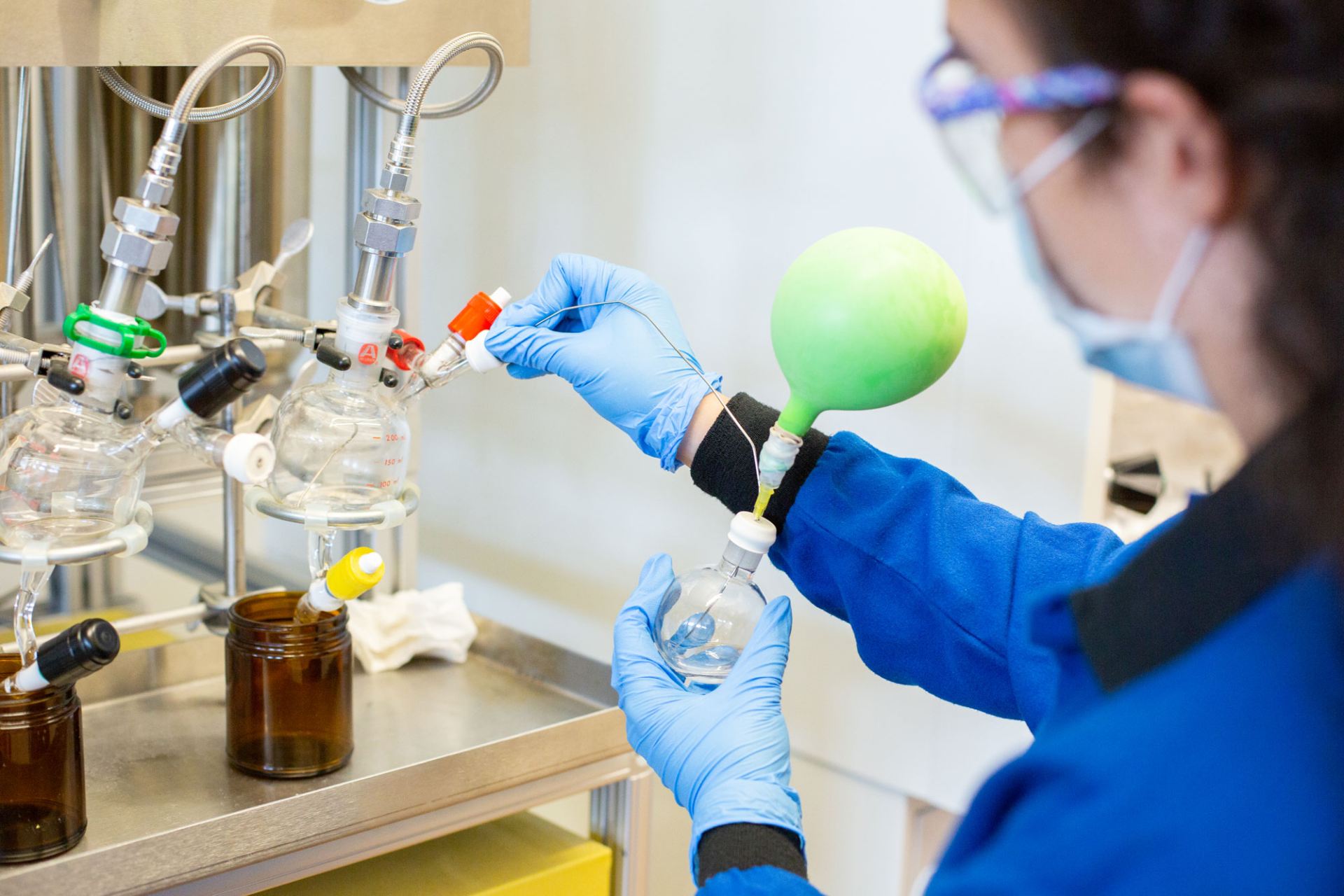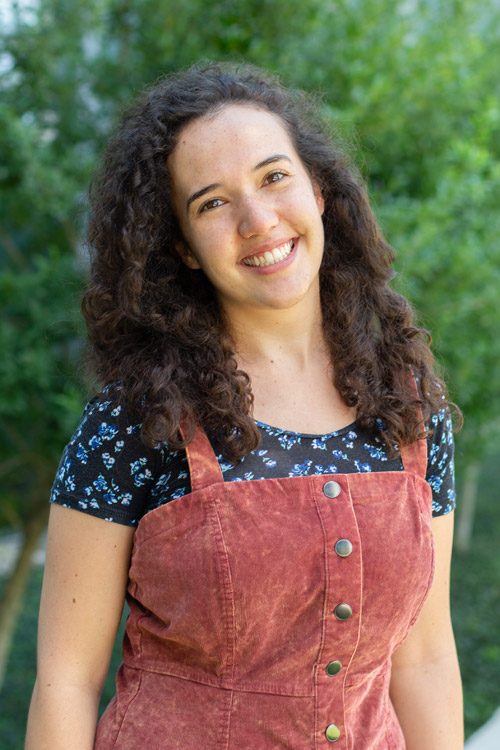
Mónica Rivas
Mónica Rivas found her passion for science through the lens of a beginner’s microscope in her childhood home in Bogotá, Colombia.
That gift from her parents allowed her to “examine everything I could get my hands on,” Rivas said – an impulse that set the stage for her research at The University of Texas at Dallas.
Now a chemistry PhD student in the School of Natural Sciences and Mathematics, Rivas said it was her pursuit of a scientific career that brought her to the U.S. – first as a high schooler, then as a college student at the University of Central Florida (UCF), the University of Illinois at Chicago (UIC) and UT Dallas.
At UCF, she was sponsored by a program to include underrepresented minorities in science, technology, engineering and mathematics fields. That program gave her the opportunity to present her research at the Annual Biomedical Research Conference for Minority Students.
“I befriended like-minded individuals during that transformational experience, which sealed my decision to pursue a career in science, focusing on research and mentoring,” Rivas said. “This decision was grounded in my passion for scientific research, fascination with chemistry and joy in conversation with the eventual mentors and mentees who have been instrumental in guiding my career path.”
With her bachelor’s degree in hand, Rivas moved to Chicago, where she met her current mentor, Dr. Vladimir Gevorgyan, who joined the UT Dallas faculty in 2019 as the Robert A. Welch Distinguished Chair in Chemistry.
“When I met Professor Gevorgyan at UIC, I was looking for a daytime visiting researcher position while employed as a server during nights and weekends,” she said. “This turned out to be one of the greatest opportunities of my life.”
UIC awarded Rivas a Pipeline to an Inclusive Faculty (PIF) Fellowship, through which she received mentorship and professional development while focusing full time on research.
“Being a PIF fellow further opened my eyes to the benefits of being part of a community that is deliberate about inclusivity,” she said. “And I met wonderfully patient, helpful and diverse colleagues and mentors in the Gevorgyan lab, my scientific home both at UIC and UT Dallas. The source of my ongoing interests and motivation lies in the work that we do in the group. And I have been fortunate to have an advisor who, aside from being an incredibly supportive mentor, is a worldclass scientist who encourages me to become a better chemist every day.”
Scientists in the Gevorgyan lab at UT Dallas are focused on organic methodology research and are seeking new ways to put molecules together for novel purposes – from synthesizing medicines to designing new materials.
“The challenge is to break chemical bonds that do not want to be broken and make new ones using conditions that are less harmful to the environment and mild enough to be applicable to many classes of molecules,” Rivas explained.
Her research efforts earned Rivas the Ruth L. Kirschstein National Research Service Award Individual Predoctoral Fellowship from the National Institutes of Health. The two-year, $91,000 grant, awarded in 2020, supports her work in developing novel molecules for use in high-precision positron emission tomography, or PET scans. This biomedical imaging technique uses small amounts of a molecule containing a radioactive atom to locate a target protein with precision.

“I have been fortunate to have an advisor who is a world-class scientist who encourages me to become a better chemist every day.”
Mónica Rivas
“These radioactive atoms are in high demand, so we’re always trying to expand radiochemistry – to find new and more efficient ways to synthesize and diversify them and to give them interchangeable parts,” Rivas said. “Then we can apply them in the early diagnosis of diseases like cancer or neurodegenerative diseases, as well as tracking how treatment is progressing.”
Her project is being carried out in collaboration with UT Southwestern Medical Center and the Advanced Imaging Research Center, a facility shared by scientists at UT Dallas, UT Southwestern and other North Texas institutions.
After completing her doctorate, Rivas hopes to find a postdoctoral research position to gain more experience as an independent scientist before seeking a faculty appointment.
“My dream is to be a professor and to continue to pursue the things I’m passionate about – mentorship and teaching alongside research,” she said.